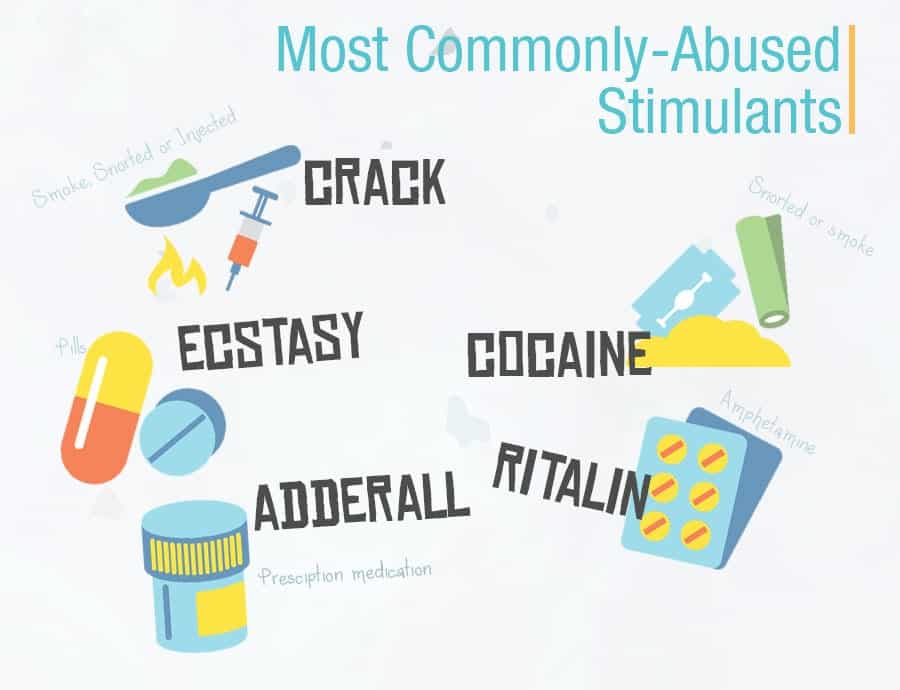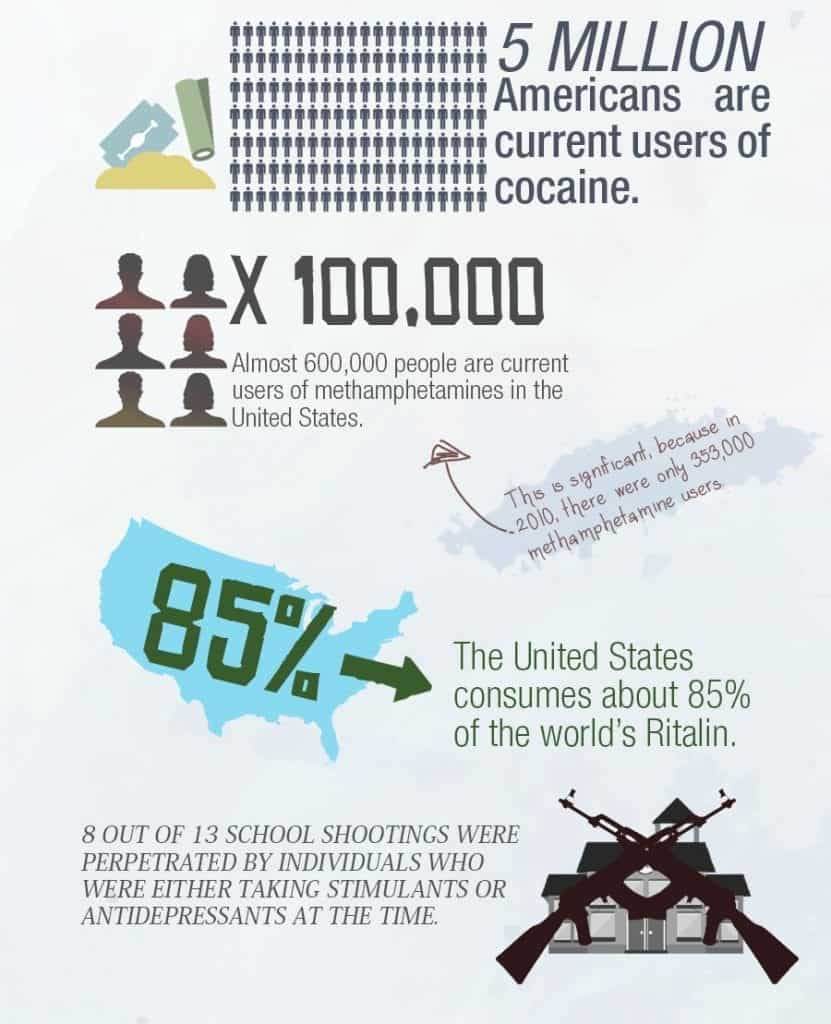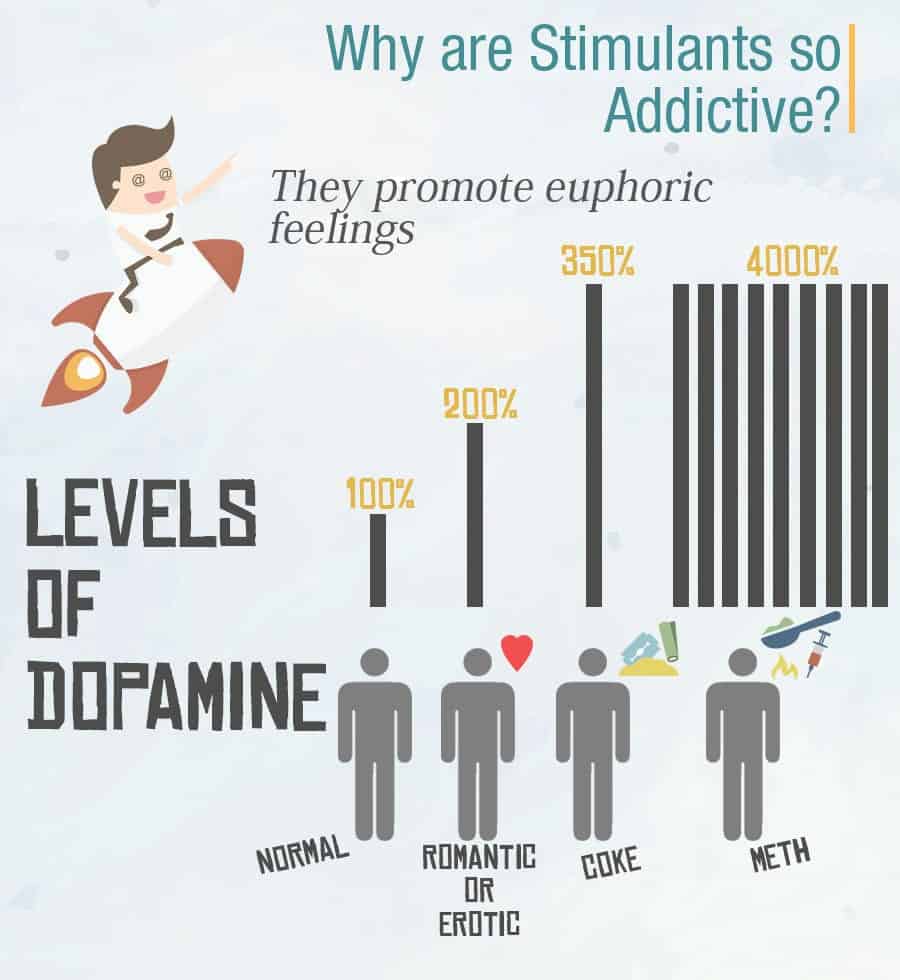Some drugs make people feel like they are on top of the world with laser-sharp focus. That is, at least, until they quickly come crashing back down. These drugs, known as stimulants, can be highly addictive and detrimental to a person’s life. After abusing stimulants, people who wind up hooked on them often seek out the help of a stimulants addiction treatment program to help them break their dependence on the drugs.
If you or a loved one struggle with stimulants addiction, Northpoint Recovery might be able to help. Our professional rehabilitation staff helps you develop a recovery plan that meets your personal goals. Give us a call today at 888.296.8976 to get started.
Why Are Stimulants Addictive?
When someone abuses stimulants, they may feel more alert and energetic. They may also feel like they can accomplish anything. These effects are caused by the increased activity of neurotransmitters, including dopamine and norepinephrine.
Dopamine is sometimes referred to as the “feel-good” chemical because it’s associated with pleasure and motivation. Norepinephrine, on the other hand, is associated with the fight-or-flight response. It increases heart rate and blood pressure while also sharpening thinking and reflexes.
The increased activity of these neurotransmitters creates a sense of euphoria. However, it also leads to increased anxiety and irritability. These effects can lead to a cycle of abuse as people try to chase the initial high they experienced.
Are All Stimulants Addictive?
While all stimulants carry some risk of addiction, some are more likely to be abused than others. The most commonly abused stimulants include:
- Cocaine – Often called “crack” or “coke,” this stimulant is derived from the coca plant. It’s a white powder that is snorted, injected, or smoked.
- Prescription amphetamines – These drugs are often used to treat attention deficit hyperactivity disorder (ADHD) and narcolepsy. Common amphetamines include Adderall, Dexedrine, and Desoxyn.
- Methamphetamine – This stimulant is more potent than amphetamines and comes in the form of a white, odorless powder that can be snorted, smoked, or injected. It’s also known as “crystal meth” or “ice.”
- Ecstasy – Often used at clubs and raves, this drug is a stimulant with hallucinogenic effects. It’s usually taken in pill form.
What Are the Signs of Stimulant Addiction?
The signs of stimulant addiction can vary depending on the person, but there are some general warning signs to look out for, including:
- Changes in sleep patterns
- Changes in eating habits
- Mood swings
- Paranoia
- Psychosis
If you or someone you know is displaying these signs, it’s essential to seek help as soon as possible. Stimulant addiction can lead to serious health problems, including heart attack, stroke, and death.
Stimulant Abuse in America
Stimulant abuse is a growing problem in the United States. The number of people using stimulants for non-medical reasons increased from 1.2 million in 2008 to 1.6 million in 2012. The NSDUH also found that the rates of stimulant abuse were highest among young adults aged 18-25.
High school students also abuse stimulants at high rates. In 2018, nearly 4% of 12th graders reported non-medical use of Adderall in the past year. This was a significant increase from 2016, when just 2.6% of students reported Adderall abuse.
Regardless of your age, seeking help for stimulant addiction can help to safely detox and learn the skills needed for recovery. Trying to quit on your own can be isolating and even dangerous because of withdrawal symptoms.
Stimulant Addiction Treatment at Northpoint Recovery
Breaking the cycle of stimulant addiction can be challenging and dangerous. You may be tempted to try to detox independently, but this can be dangerous and even life-threatening. Stimulant withdrawal symptoms can include depression, anxiety, fatigue, and suicidal thoughts.
Your success in sobriety is our priority, which is why we work with you to create a recovery plan focused on your goals. Get started today by calling us at 888.296.8976.
Full Infographic:





